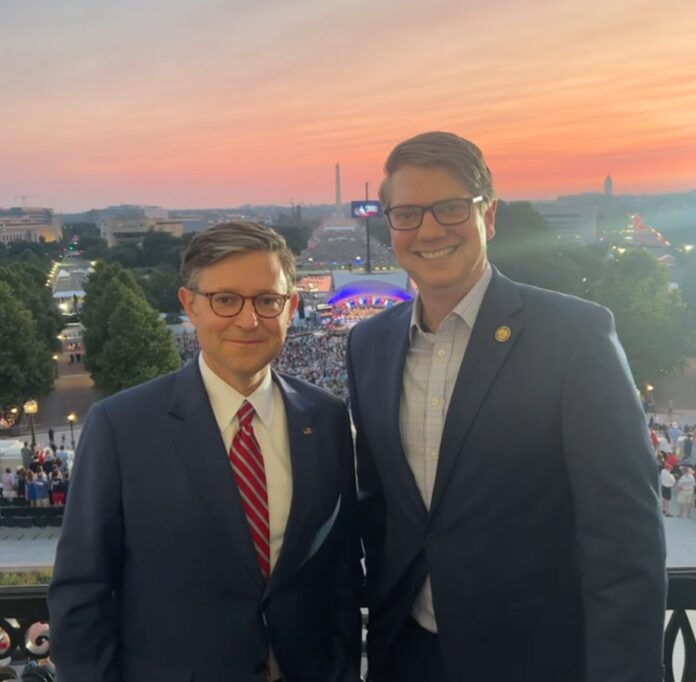
While most headlines about the “One Big Beautiful Bill” have focused on tax cuts, school choice, and border security, one of the most consequential victories for Alaska has flown under the radar. It was a quiet but powerful change to how Alaska shares in oil royalties on federal lands.
It all began in November, as Nick Begich travelled to DC for Freshman orientation, before the race was even officially called. Long before committee assignments were finalized, before most of his colleagues had even unpacked their boxes, Begich had one big idea: maximize revenues for Alaska on federal oil and gas royalties.
Alaska has lived with a 50-50 royalty split with the federal government since the days of the Trans-Alaska Pipeline System legislation. At the time, Alaska’s congressional delegation tried to secure its promised 90-10 federal land royalty split in favor of the state, but had to settle for less to get the pipeline approved. Since then, generation after generation of lawmakers, including the late Congressman Don Young, tried to correct the imbalance. Each effort hit a wall.
That changed this year. In one of the most underappreciated and masterfully executed plays in the Big Beautiful Bill, Begich managed to include language that would shift the split on new leases in NPR-A, ANWR, and Cook Inlet to 90-10, with 90% of royalties staying in Alaska. He got it through the House Natural Resources Committee and passed the 90-10 split even through the full House version as written.
Then came the Senate.
The provision ran into the arcane but powerful Byrd Rule, a rule that limits what can be included in budget reconciliation bills. The Senate Parliamentarian agreed the rate could be adjusted but was negotiated there to 70-30, a 40% increase in Alaska’s royalty revenue.
The full provision represents potentially tens of billions in future revenue that will build and maintain infrastructure, and support Alaska’s future generations.
It was no small feat to keep even that version alive. Sen. Mike Lee of Utah, who chairs the Senate Energy and Natural Resources Committee, took a meeting with Begich and agreed to support the increased formula. Alaska Senators Dan Sullivan and Lisa Murkowski went to bat to ensure it survived the final negotiations. And it did.
But make no mistake: This provision was Nick Begich’s brainchild, and it would not exist without his relentless work from Day One.
It’s worth contrasting this with the record of his predecessor, Rep. Mary Peltola, who not only voted against the Alaska Right to Produce Act, but showed no indication of having either the legislative vision or horsepower to advance such a technical but crucial policy.
Begich understood that Alaska’s economic engine starts with resource development. He didn’t just vote the right way — he built a plan, assembled the coalitions, navigated the legislative gauntlet, and delivered real results. And what is remarkable is how he did it: The split starts in 2034, which is how it got around the Byrd rule in the first place. It’s a creative flair that Begich thought of, that no one else had considered.
These efforts early on were a key reason Murkowski had to vote for this bill, which has President Trump’s signature on it now. The Alaska provisions were that important for our state and had the 70-30 not been in this bill, it’s likely she would have teetered the other way.
In a town where showmanship often overshadows substance, this is a case study in what quiet, focused, intelligent leadership can achieve. And for Alaska, it means more control over our destiny and a future that is finally starting to tilt back in our favor.
As the dust settles on the Big Beautiful Bill, Alaskans would do well to look past the flashy headlines and recognize this provision for what it is: a generational win.